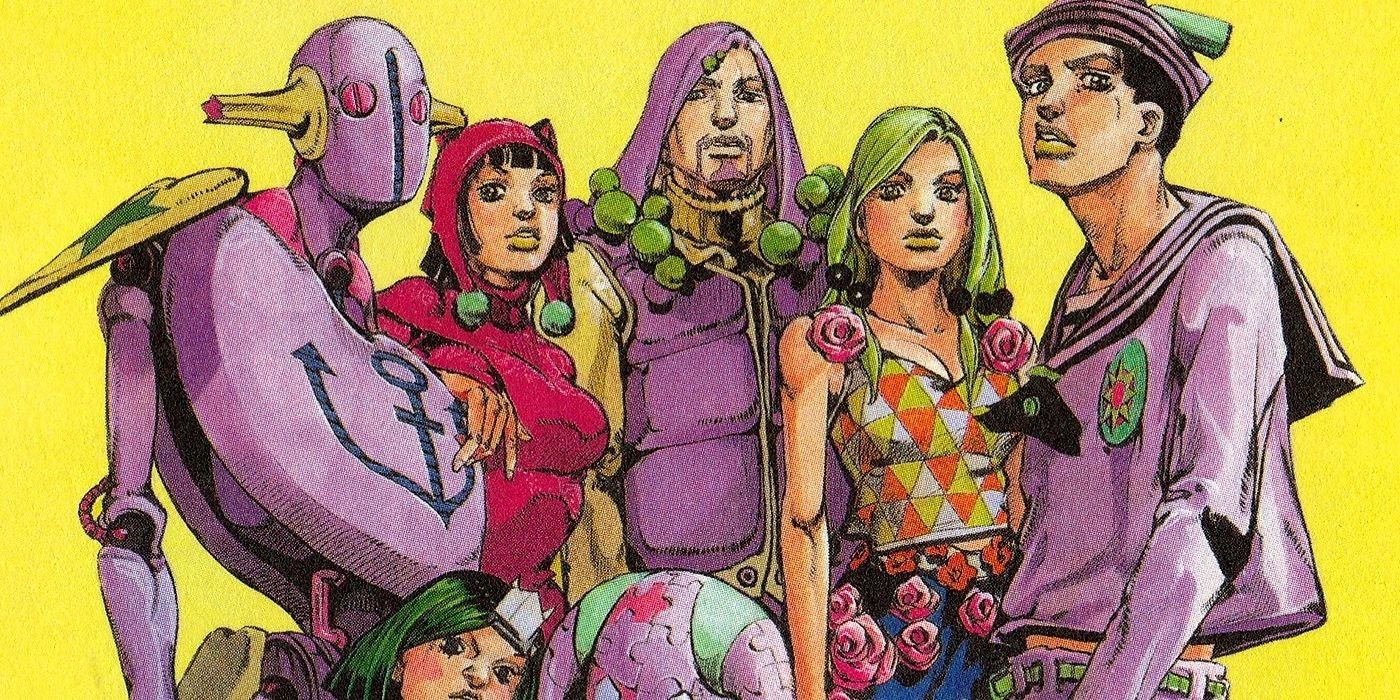It’s no stretch to say that Jojo’s Bizarre Adventure can be a bit weird at times, since it’s right in the title, but sometimes that weirdness extends to the series’ subtitles, like with part 8, Jojolion. While other parts had names like Stardust Crusaders or Diamond is Unbreakable, part 8 somehow ended up with Jojo in it twice, but this time smashed into another word. So what does Jojolion mean, and why did series creator Hirohiko Araki choose it?
For Jojo, part 7, Steel Ball Run, and part 8, Jojolion, are a little different from other installments of the series. In 2005, just a year after it started, Steel Ball Run was moved from Weekly Shonen Jump to the monthly Ultra Jump magazine, which caters to the older “Seinen” demographic, rather than WSJ‘s younger “Shonen” demographic. The story evolved at that point to become more complex and cater to older audiences, which worked conveniently well since Steel Ball Run was essentially a reboot of the series. As such, Jojo was able to amp up the weirdness even more. Part 8 began in 2011 and ran for 10 years before ending in August 2021, remaining a monthly seinen release.
According to author’s notes from volume 2 of the manga, Araki decided on the name Jojolion after learning about the Greek suffix “-lion.” Mainly used in the word “evangelion,” a name for the gospels of the New Testament of the Bible, the suffix has come to mean “gospel,” so Jojolion is literally “The Gospel of Jojo.” In the author comment, Araki does wonder if Neon Genesis Evangelion has the same origin, which of course it does, and arguably is more recognizable for the word “Evangelion” today than its original meaning. The title has no connection to the English word “Lion” as in large cat creature, and would most accurately be pronounced as “jojo-lee-on.”
Why is Jojolion’s Title in Reference to Religion?

Jojo was entering a new era with part 8, and it was meant to focus heavily on themes of family and genealogy, being about how the sins of the past can weigh on the present generation like a curse. Jojolion isn’t just the story of Josuke–it’s the story of the entire Joestar/Higashikata family, who are indeed suffering from a curse. For the first time, most of the supporting cast were in some way related to its Jojo, and many of the Jojolion characters have at least as much of a claim to being a “Jojo” as Josuke does. Jojolion has a more epic tone to it, and the sheer length of time that it ran (far longer than any other installment in the series) meant that it really did live up to the literary definition of epic. A title like that of a traditional epic just seems the most fitting.
While some might say titles don’t matter too much, it’s clear that Araki put a lot of thought into what he wanted to call Jojo’s Bizarre Adventure part 8. Jojolion might not mean much at first glance, but when one understands the reasoning behind it, it’s hard to argue with his decision.




